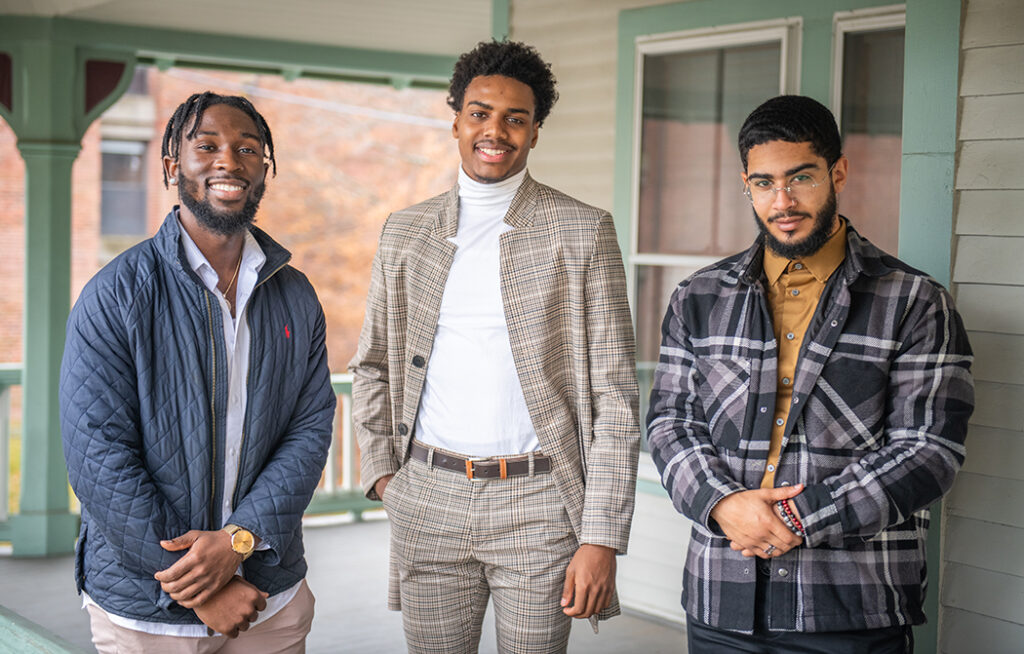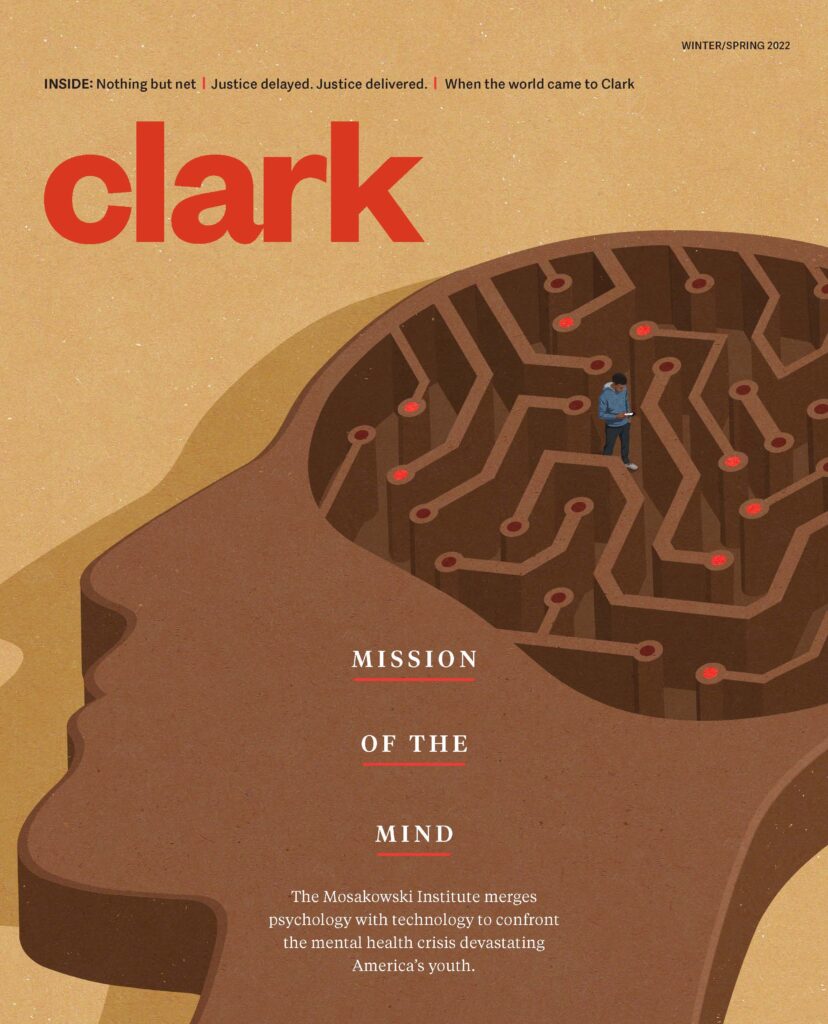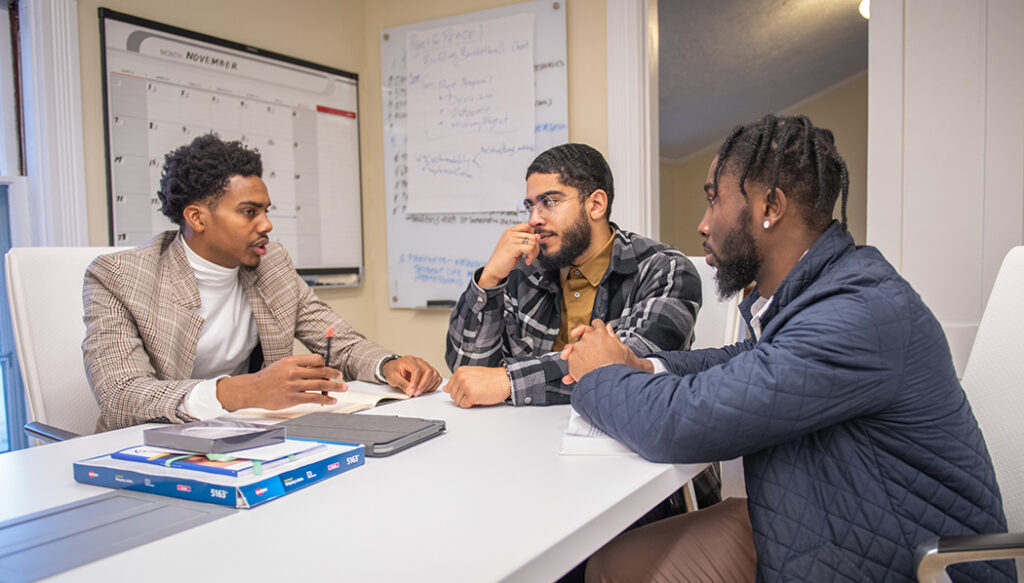Clark Magazine
Working to Shed the Stigma

Biko Gayman ’21, MHS ’22, remembers when it was considered a sign of weakness for a young man to display any measure of emotional sensitivity.
“Growing up, it was frowned upon to be vulnerable, to cry,” he says. The stigma is real.”
Gayman, Gralen Vereen ’22, and Andy Acevado ’23 are research follows at the Mosakowski Institute, where they are contributing to the work to address the behavioral needs of adolescents and young people, especially boys and young men of color — and developing their own ventures that will support communities of color.

“Our fellows are encouraged to be creative and entrepreneurial in identifying real-world problems that can be solved by leveraging technology,” says Director Nadia Ward.
In spring 2021, Ward created an informal advisory group of college-aged Black men, including from Clark, to determine where the prevailing challenges are among this community. The group was asked a single question: What is it like to be young, male, and Black in the United States today?
That one-hour discussion led to three months of biweekly meetings of a group that became known as the King’s Council. “We just wanted to keep it going,” says Vereen.
Last October, the Mosakowski Institute hosted “We Are Our Brothers’ Keeper,” a retreat for young men of color, in Brimfield, Massachusetts, featuring activities, speakers, and wide-ranging conversations.
“We talked about relationships, manhood, masculinity, business, financial literacy, entrepreneurship,” Vereen says. “It meant a lot to me — first just being able to be in that space and be vulnerable but also to be held accountable. The speakers let us express how we felt, but they also pointed out where we needed to do more work.”
Speakers included Aaron Haddock, director of behavioral health initiatives at the Mosakowski Institute, Kamaro Abubakar, associate dean of students, and Matthew Graves, assistant men’s basketball coach — who all continue to serve as mentors for the young men involved — as well as Clark Trustee Kevin Cherry ‘81.
Like Vereeen and Gayman, Acevedo rarely expressed his feelings when he was growing up. “Mental health was not something you could talk about. Now that I’ve gotten older, and with technology being, more prominent in our lives, the conversation has become more public. People are starting to talk about mental health and being more comfortable with it.”

Gayman, who majored in biology as an undergraduate, is researching interventions to support young men of color, with a particular focus on the role of Black fraternities; his work, which will be published, includes interviewing fraternity leaders. A star guard on the Clark men’s basketball team, Gayman is developing an app for young men of color who are also athletes.
Vereen is also studying the impact of Black fraternities. A management major, he is looking at ways to uplift communities of color through entrepreneurship, including an app that showcases Black businesses.
As part of his fellowship, Acevedo, a management major who has a strong interest in esports, is contributing to the institute’s clinical virtual reality projects and has created an online platform to bring together competitive gamers from across the country.
Last fall, the three research fellows traveled to Chicago to participate in the Entrenuity Business Plan Bootcamp, where they presented and received feedback on their business strategies.


